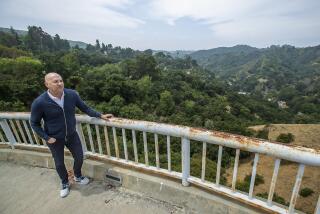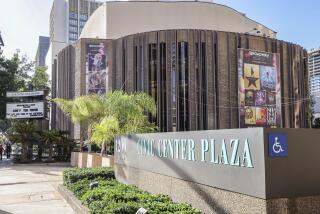Could Affect Compton : Carson Officials Hold Talks on Annexation
- Share via
Carson city officials have been involved in a series of closed-door negotiations with three area development firms over what could be a series of major city concessions in exchange for the companies’ support of an effort to annex 800 acres of unincorporated county land.
Negotiations between two council members and representatives of three closely associated development companies--Watson Land Sales, Dominguez Properties and Carson Estate Co.--have taken place on three occasions during the last month, since city officials voted to endorse the effort of about 2,000 county residents to be annexed into Carson.
The three development companies are among the largest landholders in the annexation area, which is mostly composed of industries and vacant land.
The residents who have launched the annexation proceedings, all of whom are mobile home dwellers, represent the majority of residents in the unincorporated area. It also includes the historic Dominguez Seminary and Adobe.
Hearing to Be Set
When the bid for annexation is considered by the county’s Local Agency Formation Commission--a hearing is to be scheduled within the next several months--strong opposition is expected from Compton officials. They have claimed to be the rightful heirs of the Dominguez Seminary and Adobe. That site, as well as one of the area’s two mobile home parks, are within Compton’s county-designated “sphere of influence.”
If approved by the Carson City Council, the concessions now being negotiated by Mayor Kay Calas, Councilwoman Vera Robles DeWitt and city staff could change the face of at least one neighborhood, alter oil drilling regulations on certain properties and involve the funding of several million dollars in street improvements.
While negotiating with the companies about city regulations and other issues related to the annexation, the council subcommittee is considering changing laws that relate to at least one property already in Carson. That 340-acre parcel, owned by Carson Estate Co., is adjacent to the annexation area, north of 190th Street and west of Wilmington Avenue. The annexation area is bounded by Del Amo Boulevard on the south, Wilmington Avenue on the west, Alameda Street on the east and roughly by Victoria Street on the north.
City officials say that in addition to the companies’ support for the annexation, Carson stands to gain a bicycle path, the right to build city structures at the Dominguez Channel and development of Carson properties.
Despite the potential magnitude of the matters being discussed, repeated requests by The Times for public access to the meetings of the council-approved subcommittee have been denied by Calas, DeWitt and City Atty. Glenn Watson (who has no connection with the Watson Land Co.).
In explaining her reason for closing the subcommittee meetings, Calas said that the presence of the public might inhibit negotiations. She said it would be easier to “try to do what’s best for the city” in closed meetings.
DeWitt explained, “It might be difficult to negotiate with the newspaper there. It’s a very touchy situation; there’s a very fine line.”
Although city staff and development company representatives have participated in each of the meetings, City Atty. Watson has denied public access on grounds that the subcommittee is composed “solely” of Calas and DeWitt. The state legislation that mandates open subcommittee meetings, the Brown Act, includes an exemption for committees that are composed of less than a quorum of the City Council, and no one else.
In the past, according to Councilman Thomas Mills, Councilman Walter Egan and City Clerk Helen Kawagoe, subcommittee meetings have been open to the public in Carson. All five council members said they were not aware of a specific policy change.
Probable Reason
Mills, the only official who expressed concern about the nature of the talks being conducted by the subcommittee, asserted that the participation of major development companies has probably persuaded council members to close the meetings.
“Watson Land Co. is the key,” Mills said. “Watson has been in the position previously of getting what they want with certain council members. They don’t want the press or the public to see how much control they have over these council members.”
Added Mills, “The whole arrangement bothers me a bit. When we created this subcommittee, it never dawned on me that it was solely a property-owners subcommittee. It’s taken a different turn than I anticipated when the subcommittee was formed.”
More to Read
Sign up for Essential California
The most important California stories and recommendations in your inbox every morning.
You may occasionally receive promotional content from the Los Angeles Times.













